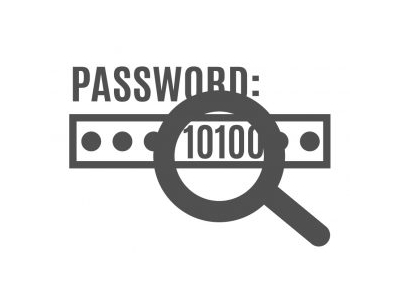
In the digital era, it is no longer a question of whether companies will be the target of cyber attacks, but when. In view of the growing threat situation, the question is:
Why would someone hack me?
My company is too small or insignificant for cyber criminals, right?
What would a hacker gain from breaking into my system?
What would be my consequences of an attack
These questions are the first impulse and initially justified. Answering them honestly offers initial insights and valuable insights for entrepreneurs who want to improve their digital security. The following shows why:
Why someone should hack YOU !
YOUR company is NOT too small or insignificant for cyber criminals!
What a hacker gets out of breaking into YOUR system!
What YOUR consequences of an attack can be!
Data is the new gold
Probably the most obvious reason for a hacker to break into your company is to gain access to data. Data is one of the most valuable assets a company has today. Customer data, financial information, confidential business documents or intellectual property – all this data can be of enormous value, both to the hacker and to the black market.
- Customer, personal and company data (including credit card data, account data and personal information) is particularly valuable to cyber criminals. It can be sold or used for identity theft. Intellectual property such as patents, designs or algorithms are of immense value to competitors looking to gain a technological or commercial advantage.
- Financial data provides insights into a company’s liquidity and can be used to carry out targeted blackmail.
For hackers, this data has both financial and personal benefits. By gaining access to this information, they can not only boost their finances, but also enhance their personal reputation or brand recognition.
Of course, causing lasting damage to your company’s business activities has benefits for various parties. Depending on the industry, for example, for the competition, the stock market, dissatisfied stakeholders, hackers and other cyber criminals could deliberately disrupt a company’s ability to do business in order to extort ransom (ransomware), steal data or attack the company for ideological reasons.
Blackmail: ransomware attacks are lucrative
Another common motive for hackers is blackmail, especially in the form of ransomware attacks. This involves hackers encrypting company data and demanding a ransom for its release. According to current statistics, small and medium-sized companies are particularly affected, as they often do not have sufficient security measures in place.

Losing data or being unable to access important systems can have catastrophic consequences for you and your business. In such cases, hackers put targeted companies under pressure in order to achieve a high payment. But the danger goes beyond the financial damage. Legal consequences, loss of productivity, impact on employees – the chain of damage is long. The loss of customer trust and reputational damage are often even more serious for your company.
Access to sensitive systems and infrastructure
Some hackers do not target data directly, but the weak points in companies’ IT infrastructures. If a hacker manages to gain access to systems such as servers, networks or critical applications, they can either sabotage them or exploit them for their own purposes.
For example, a hacker could:
- Build botnets by controlling a company’s computers and servers and using them for DDoS (Distributed Denial of Service) attacks or illegal activities.
- Exploit security vulnerabilities in software to take control of systems and use them for further attacks.
The more complex and networked a company’s IT infrastructure is, the more potential points of attack there are for hackers to exploit. This type of attack can be expensive for your company, not only because of the direct damage, but also because of business interruptions.
Competitive advantage through espionage
An often overlooked aspect of cyberattacks is economic espionage. Large companies are increasingly being targeted by hackers working for competitors or even governments to steal information and gain a competitive advantage.
A hacker who infiltrates your company’s systems could steal confidential information about new products, research results or market strategies and pass it on to competitors. Especially in industries such as technology, pharmaceuticals or financial services, where intellectual property and strategic information are of high value, industrial espionage by hackers can seriously threaten a company’s market position.
Political or ideological motives

There are also hackers who attack for political or ideological reasons. These “hacktivists” aim to spread a certain message or take action against a company or organization that they oppose for moral or political reasons.
An example could be an attack on a company operating in a particular region or industry that is considered unethical or exploitative by hacktivists. Such attacks are usually less financially motivated and more aimed at attracting attention and publicly discrediting your company.
Weaknesses in the security strategy
An important point for business owners to understand is that many hackers are not necessarily looking for specific companies, but rather weaknesses in security strategy. A company that uses outdated software, has weak passwords, does not conduct regular security audits or does not provide comprehensive employee training in cybersecurity is an easy target.
Cybercriminals often use automated attacks to scan and penetrate vulnerabilities in millions of systems simultaneously. So if your company doesn’t have a proactive security strategy, you’re making yourself an easier target.
Conclusion:
Answer the questions honestly now:
Why someone should hack ME is…
MY company is NOT too small or insignificant for cybercriminals because…
A hacker has benefited from an intrusion into MY system,...
MY consequences of an attack can be…
There are many reasons why a hacker could target your company
Whether for financial, political or strategic reasons, hackers are constantly on the lookout for new targets, and any company can potentially be a target. For entrepreneurs, this means that cyber security is not only a technical necessity, but also a business priority. Protecting data, systems and infrastructures is not just a question of defending against attacks, but also a question of long-term business success.
You should therefore not ask yourself whether you will be hacked at some point, but rather:
How can you arm YOURSELF and YOUR company against such attacks?
The right security strategy, regular employee training and the ability to react quickly in an emergency are crucial to minimizing the risk of a successful attack.
Examples:
- Use technical protection measures such as firewalls, antivirus and regular updates.
- Get external support through penetration tests, certifications and insurance.
- Secure your data with a reliable backup strategy.
- Use the specialized knowledge and experience of (certified) external experts to stay on top of cyber security.
- Train your employees regularly on cybersecurity topics.
- Organize access to systems according to the principle of least privilege.
- Have your IT systems and processes checked regularly in a practical manner.
- Create a clear emergency and recovery plan.



